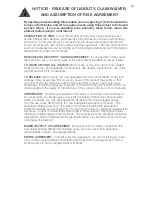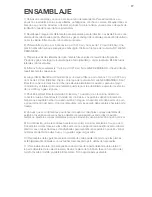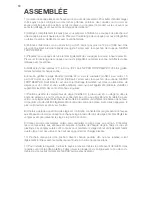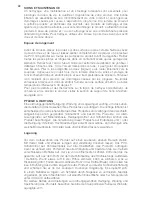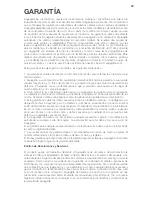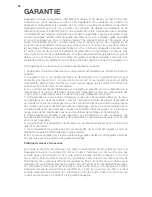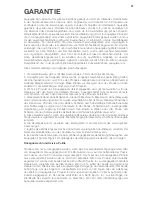
23
PATCHING
1. Completely DEFLATE the chamber to be repaired.
2. Using MATCHING material from the supplied Repair Kit, carefully cut PVC patch
material to size using sharp scissors or razor knife.
a. The patch should be least 3 - 5cm (1-2”) larger than hole IN ALL DIRECTIONS
around any air leak. This means a minimum patch size of 5cm x 5cm (2” x 2”) for a
pinhole leak. The larger the patch, the better.
b. Square patches with rounded corners are usually best, as this reduces the risk of
peeling.
3. Dry-fit the patch over the area to be repaired to ensure good fit and coverage.
Draw an outline with a china marker (not provided).
4. Next, use the glue (provided). Use a disposable ‘chip’ brush (not provided) to
spread glue if needed. Try to work neatly and quickly.
a. Using a disposable brush, apply a thin, even layer of glue to the repair area
making sure to cover the area completely. Stay INSIDE the china marker outline.
b. Using a disposable brush, apply a thin, even layer of glue to the back of the
patch making sure to cover the area completely.
c. Allow glue to cure for approximately 60 seconds.
d. Starting at one corner, carefully align the patch over the repair area using the
china marker outline as a guide. Once the two surfaces touch, the bond will be
immediate, so take care.
e. Starting at one corner and working outward, carefully apply the patch to the
repair area using very firm pressure.
f. Rub the entire patch area and the edges of the patch using very firm pressure.
g. Allow curing for at least 24 hours before inflating.
5. The method described above can be used for NON-Airholding patches, such as
cuts or punctures in the kayak hull material (bottom skin). NON-Airholding repairs
to the hull are best done to the OUTSIDE surface of the hull, with the kayak fully
inflated.
6. Fabric-covered kayaks also come with a selection of matching fabric repair
material. Fabric cover repairs should be done by a sewing repair specialist such as
a sailmaker, or awning repair service.





